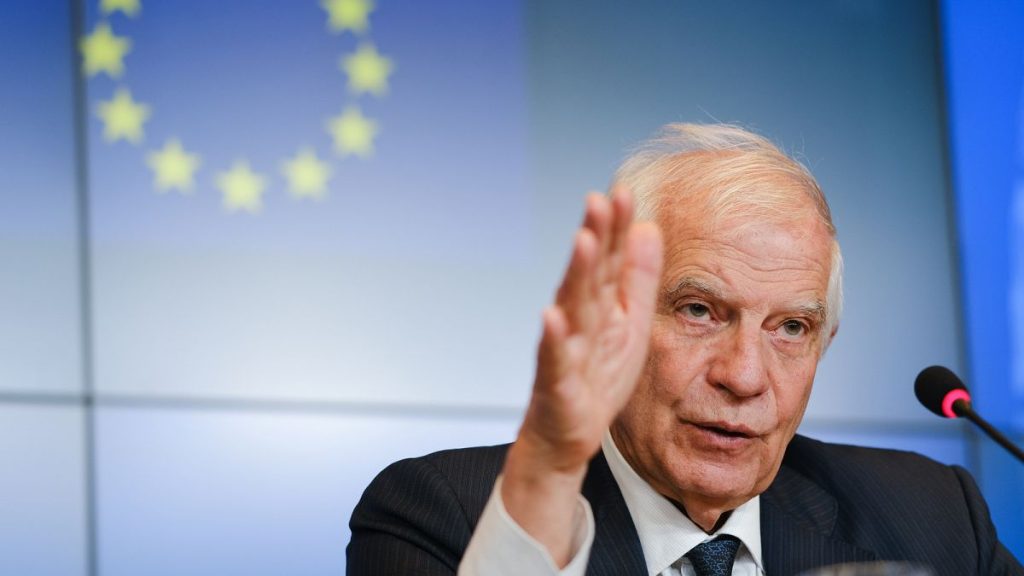The EU’s foreign affairs chief, Josep Borrell, has expressed concern over the removal of navigation buoys on the Narva River by Russian border guards in Estonia. Borrell described this act as part of a broader pattern of provocative behavior by Russia in the region, including on land and maritime borders. Estonia has demanded an explanation from Moscow for the incident and the return of the buoys, with Prime Minister Kaja Kallas accusing Russia of using border issues to instill fear and insecurity in societies. This incident is seen as part of ongoing tensions between Russia and its neighbors in the Baltic Sea region.
The removal of the buoys came shortly after a leaked Russian decree outlined plans to redraw territorial waters according to Soviet-era borders, leading to speculation that Russia may be attempting to expand its control in the region. This sparked concern among neighboring countries such as Lithuania and Finland, with Lithuanian foreign minister Gabrielius Landsbergis accusing Russia of engaging in a hybrid operation to create fear and uncertainty. Finland vowed to respond calmly based on facts, while Lithuania urged Russia to abide by international law and recognized principles in its actions.
The incident on the Narva River and the leaked decree proposing changes to maritime borders have been condemned by high-ranking EU officials as Russian provocations designed to test the response and resolve of European nations. The issue is set to be discussed by EU foreign ministers in Brussels, with support already expressed by Germany, France, and Belgium for Estonia, Lithuania, and Finland. Germany’s foreign minister, Annalena Baerbock, criticized Russia for attempting to stir trouble at the borders of the European Union, highlighting the growing tensions in the Baltic Sea region.
Estonia has remained calm but firm in its response to the incident, using diplomatic channels to demand an explanation and the return of the buoys. The country has been contesting the positioning of the buoys since Russia’s invasion of Ukraine in February 2022, with concerns mounting over Moscow’s use of hybrid warfare to destabilize its European neighbors. The removal of the buoys is just one example of broader provocative actions taken by the Kremlin, according to Borrell, who called for immediate action from Russia to address the situation.
The incident on the Narva River is seen as part of a broader pattern of Russian aggression and provocation in the Baltic Sea region, with concerns growing over Moscow’s intentions and actions. The removal of the buoys and the leaked decree proposing changes to territorial waters have raised alarm among neighboring countries and the EU, prompting calls for a united response to deter further escalation. The EU’s foreign ministers are expected to address the issue and show solidarity with countries affected by Russia’s actions, underscoring the need for a coordinated approach to counter Russian aggression in the region.













